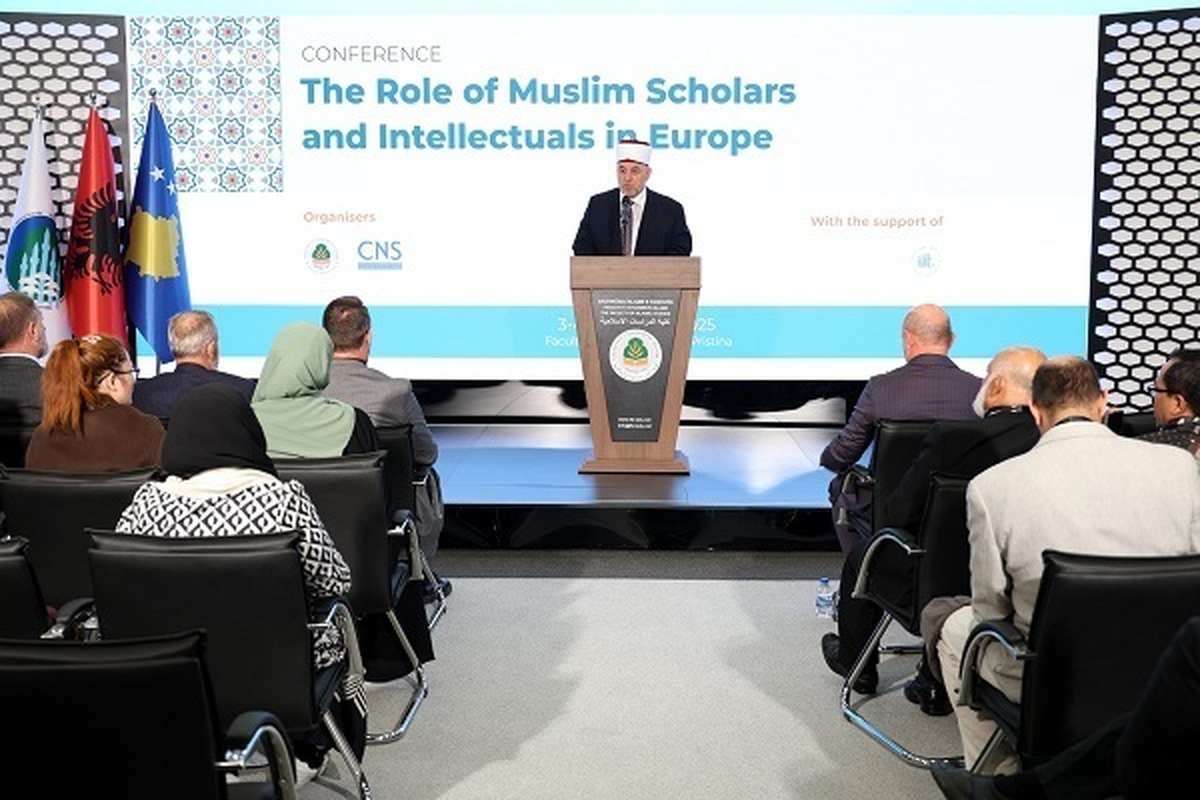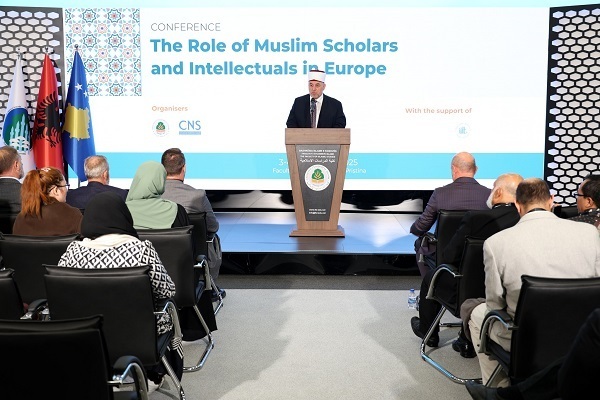Kosovo Hosts Conference on ‘Role of Muslim Scholars in Europe’


According to MuslimsAroundTheWorld website, this conference was organized by the Faculty of Islamic Studies in Pristina, affiliated with the Islamic Grand Mosque (Department of Muslim Affairs) of Kosovo, in cooperation with the Faculty of Islamic Sciences and the Center for Advanced Studies in Sarajevo, Bosnia.
A group of researchers and academic figures from Europe and beyond took part in the scholarly event, held on October 3-4.
The conference was part of the efforts of the Faculty of Islamic Studies in Pristina to strengthen scientific research and cultural dialogue, and open channels of communication and cooperation between Muslim and European researchers and thinkers.
It sought to help strengthen the values of understanding, peace, and coexistence in European societies.
The conference sessions were in English and explained the role of Muslim scholars and thinkers in Europe throughout history and the present, their future role in strengthening understanding between cultures and religions, and intellectual and ethical challenges in the digital age.
In a speech at the conference, Sheikh Naim Tarnava, the head of the Islamic Grand Mosque of Kosovo and the country’s Grand Mufti, emphasized the position of science and knowledge in Islam and the role of Muslim scholars throughout history in the correct interpretation of the Quran, Hadith, and other sciences.
On the first day of this conference, the challenges facing Islamic values in contemporary Europe, the impact of religious discourse on Western civil law, and the role of critical rationalism and empirical reason in Islamic thought were examined, and their comparison with the results of Western philosophy was discussed.
Read More:
The present researchers also examined the role of Muslim writers in enriching European culture, the relationship between Islam and democratic governance in the Balkans, systematic approaches to promoting interfaith and intercultural dialogue, and the impact of digital platforms and artificial intelligence on Islamic studies in Western societies.
The first day of the conference ended with a session on issues related to Muslim women in Europe. This session was dedicated to examining topics such as the education and effective presence of Muslim women in public circles, as well as the challenges facing Muslim women in Finnish academic circles. Examples of Belgium’s experience in supporting family education were then presented by institutions and scholars.
The conference sessions continued on Saturday, to examine the role of Muslim scholars and thinkers in historical periods, and to open new horizons for the discussion about the place of Islamic thought in Europe today and in the future.
4308687



